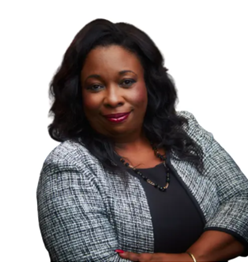Digital Trust, Real Impact
Why Financial Inclusion Must Start With Community-Based FinTech
By Dawn Nelson

For decades, credit unions and cooperatives have stepped into this gap, serving as trusted anchors in communities where traditional banks often don’t reach. They have long been the first stop for micro-entrepreneurs, market vendors, and single-income households needing a loan or a safe place to save. This trust is powerful—and underutilised in FinTech strategies.
If financial technology is to fulfil its promise of inclusion, it must be embedded in the social architecture people already trust. That means working with—not around—community institutions.

Embedding FinTech in Institutions That People Trust
What would it look like to truly decentralise digital finance, not just through blockchain or DeFi protocols, but by placing tools of empowerment directly into the hands of local institutions?
Imagine credit unions offering seamless mobile wallets that sync with their legacy systems. Or cooperatives acting as onboarding agents for digital finance platforms. Or schools not only accepting digital payments for uniforms and lunches, but using those interactions to teach students about financial literacy and digital responsibility.
Executing the Vision: Public-Private Collaboration Is Non-Negotiable
Community trust alone is not enough. Execution requires infrastructure, interoperability, policy alignment, and above all—collaboration.
The public sector brings reach, legitimacy, and regulation. The private sector brings innovation, speed, and product-market fit. But civil society and community institutions bring trust and local context. When these actors align, scalable change becomes possible.
We’ve seen it in action: When a regional credit union federated its infrastructure to allow for cross-union mobile apps. When a government agency provided regulatory sandbox support for rural FinTech pilots. When a digital wallet company partnered with a bill payment providers.
The outcomes? Higher adoption. Higher retention. And deeper impact.
Evolving Mindsets: Financial Literacy Is More Than a Buzzword
Let’s be honest: the term financial literacy has become a catch-all that often misses the mark. Real transformation demands more than workshops on budgeting or savings. We need to reshape the money mindset—especially for the next generation.
In many households, conversations about money are avoided, loaded with fear, or wrapped in scarcity. Parents unconsciously pass on limiting beliefs about money—“money is hard to get,” “rich people are greedy,” “you’ll never afford that.” These become the operating system for a child’s relationship with finance.
Our job, as ecosystem builders, is to interrupt that cycle.
 We must create content, tools, and systems that help children to see money as a tool for empowerment—not anxiety. And we must support parents in developing a healthier money mindset themselves.
We must create content, tools, and systems that help children to see money as a tool for empowerment—not anxiety. And we must support parents in developing a healthier money mindset themselves.Inclusive Innovation Demands a New Metric of Success
Too often, success in FinTech is measured by transaction volume, user acquisition, or valuation. But if inclusion is the goal, we need new metrics:
- Trust built – Do users feel confident using the platform?
- Behaviours shifted – Are families talking more about money? Is it happening earlier in the life cycle on the way to adulthood
- Access expanded – Are rural, disabled, or low-income users fully onboarded and supported?
- Ecosystem strengthened – Have credit unions, schools, and NGOs been empowered as nodes of digital innovation?
If we reframe our KPIs around impact—not just input—we evolve the conversation from “how many users” to “how many lives changed.”
I have tried to walk that talk myself with the creation of the MyCashlessClass platform. I believed that a digital platform that offered parents convenience in managing their children’s school transactions (whether used for sending lunch money, paying fees, or responding to permission slips)in the trusted safe space of the school environment, could give persons previously unexposed to the digital transaction world, a low risk experience that we could build on nationally.
More than just being a convenience tool, the aim is to use it as a conversation starter between parents and children about how money works in a digital world and how digital solutions can drive opportunities for them in entrepreneurship. By anchoring itself within the school community, the MyCashlessClass platform is designed to build trust and familiarity, rather than fear and disengagement. The earlier we expose our children, the more digitally comfortable they will be and the more open to being innovators themselves.
Building a Financially Empowered Caribbean
The Caribbean has always been a region of ingenuity and resilience. From our informal economies to our tight-knit communities, we’ve proven that innovation doesn’t have to come from Silicon Valley.
The next phase of FinTech here will not be about copying global models. It will be about adapting them to our unique context. That means respecting our trust networks, learning from our community institutions, and designing for our real-world behaviours.
To Engage, we must meet people where they are—emotionally and institutionally.
To Execute, we must build platforms with communities, not just for them.
To Evolve, we must let go of outdated assumptions about who belongs in the digital economy—and start designing systems where everyone does.
Conclusion: Trust is the Currency of Inclusion
If we want digital finance to be truly transformative, we have to do more than build apps. We have to build trust.
Let’s anchor FinTech in the power of our communities. Let’s move beyond flashy features to meaningful impact. And let’s remember that inclusion is not an end state—it’s a practice.
Every time we design with empathy, every time we collaborate with care, and every time we teach a child how to budget or a grandparent how to scan a QR code, we’re creating a more financially resilient Caribbean.
The future of FinTech is not just faster or smarter—it’s more human. And that’s a future worth investing in.

Dawn Nelson is the Vice President, Financial Sector Transformation and Founder of MyCashlessClass